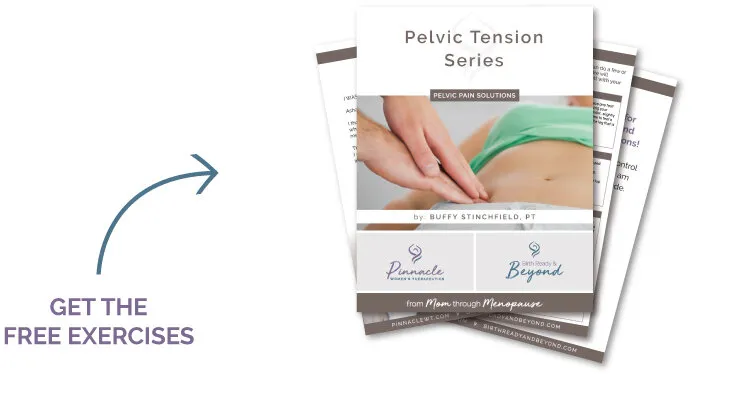Just when I thought one issue was enough, I found myself struggling with TWO! My first hellish menstrual cramps started my freshman year in college. And for anyone who has experienced cramps to this degree, they will probably remember stories vividly with how bad things got. I’ll never forget that time my boyfriend (now husband) drove me back to my dorm on the back of his borrowed scooter moped thing while I cried into his back and he feeling helpless kept saying “I’m sorry, I’m sorry”.
A few years later as a newlywed, I began having painful abdominal pains and what I called “gut attacks”. There were trips to urgent care, CT scans at the ER, only to be told I didn’t have appendicitis and to go home and stop being constipated.
While hormone birth control helped to reduce the menstrual cramps, my gut continued to be a regular challenge to getting through days of college, graduate school, and workdays for about 2 decades before I finally started finding things that made a major difference. It started with seeing a naturopath, and I’ll share with you what I have learned personally that helped my gut issues and what I have learned professionally as well.
There have been many large scale studies that find that there is a much higher incidence of gut and IBS symptoms with women who have endometriosis than with women who do not have endometriosis. Clinically when I work with patients who I may be seeing for pelvic pain but also mention a long history of IBS, I am more suspicious of the chances of them having endometriosis. And while surgery is the only true way to diagnose endometriosis, having both issues makes the person’s chances greater of having it.
Though surgery is the gold standard for treatment of endometriosis, there can be other lifestyle medicine interventions or changes that can be implemented with often significant benefit. As my colleague Jessica Drummond writes in her book “Outsmart Endometriosis”, we need to “optimize systems, and not chase symptoms”.
So here are 5 ways you can optimize your gut health, which may make a huge difference to overall inflammation in the body. (this is not an exhaustive list)
1). Chew your food.
This may sound silly, but we often do NOT chew nearly enough before we swallow our food. As I have heard it said by other clinicians, our stomachs don’t have teeth! In order for us to be able to actually absorb and benefit from the nutrients we are consuming, we HAVE to physically break down our food in our mouth before we send it down to the stomach. It is recommended that we need to chew 40 times before swallowing!
Start by counting how many times you currently chew your food before swallowing and try to gradually increase the number.
2). Probiotics.
Our gut microbiome (the bacteria that live in our gut) directly impacts our immune system and inflammation within our body. So it only makes sense to work to improve the healthy balance of good gut bacteria vs “bad” bacteria. Taking a probiotic supplement regularly can be crucial to restoring this balance that can be impacted by taking antibiotics or ingesting foods that harm our good gut bacteria over time.
Along with this, I have personally found that taking a prebiotic can make things even better. Think of the probiotic as the bacteria seed, and the prebiotic the feed. Helping those god guys have a fighting chance to thrive is how I think of it.
3). Digestive Enzymes.
If your gut is inflamed or healing, it may not be producing all of the right enzymes or the right amounts to properly break down your food. I would recommend a digestive enzyme with meals. It can go a long way to reduce gut pains after meals as well as gas or bloating. I find that I am sensitive (not allergic) to gluten and dairy and my combination enzyme works wonders! I can seriously reduce gut discomfort by taking this step.
4). Magnesium.
This is by far one of my most recommended supplements to take. ESPECIALLY for those who experience constipation. In this case, magnesium citrate can work wonders! Magnesium in all of its forms is used in over 300 processes in the body and is known to be essential for helping the body detox or get rid of certain things. Stress can MAJORLY deplete our magnesium supply and cause a whole host of symptoms including constipation.
I was taught by my naturopath to start with the smallest dose, and then titrate up each night when I took it till my bowel movement was ideal the next day. If your bowel movement goes towards more runny, then it’s time to reduce the magnesium dose. Check with your naturopath on what their favorite magnesium citrate is as well as their suggested dosage. As an alternative, magnesium glycinate is known to be gentler if constipation is not an issue for you.
5). Elimination Diet.
There are no perfect tests to determine exactly what foods affect our bodies. But an elimination diet can give us a lot of clarity with what foods we should be avoiding to reduce the stress to our gut and to reduce overall inflammation. I would recommend working with a dietician, nutritionist, or naturopath on this. Or, I would recommend the elimination diet instructions in Jessica Drummond’s book titled “Outsmart Endometriosis”.
Of all the things that I was told to try or do in my 20’s to help me with my abdominal symptoms, none of the above were recommended. Instead, I was given prescriptions for harsh laxatives, anti-nausea medications, or told that I simply didn’t have any cause to have pain and to go home from the hospital or doctor’s office without answers.
I have since found professionals that excelled in treating gut issues (naturopaths), but I am acutely aware of how little women are told even today. So look over this list, talk with or find a naturopath, and consider checking out Jessica Drummond’s book titled “Outsmart Endometriosis” for more step by step instructions in improving both gut health and reducing inflammation and pain for endometriosis sufferers.
Are you also having pelvic pain? Click here to download my pelvic tension series of exercises designed for women with pelvic and pelvic floor pain.




